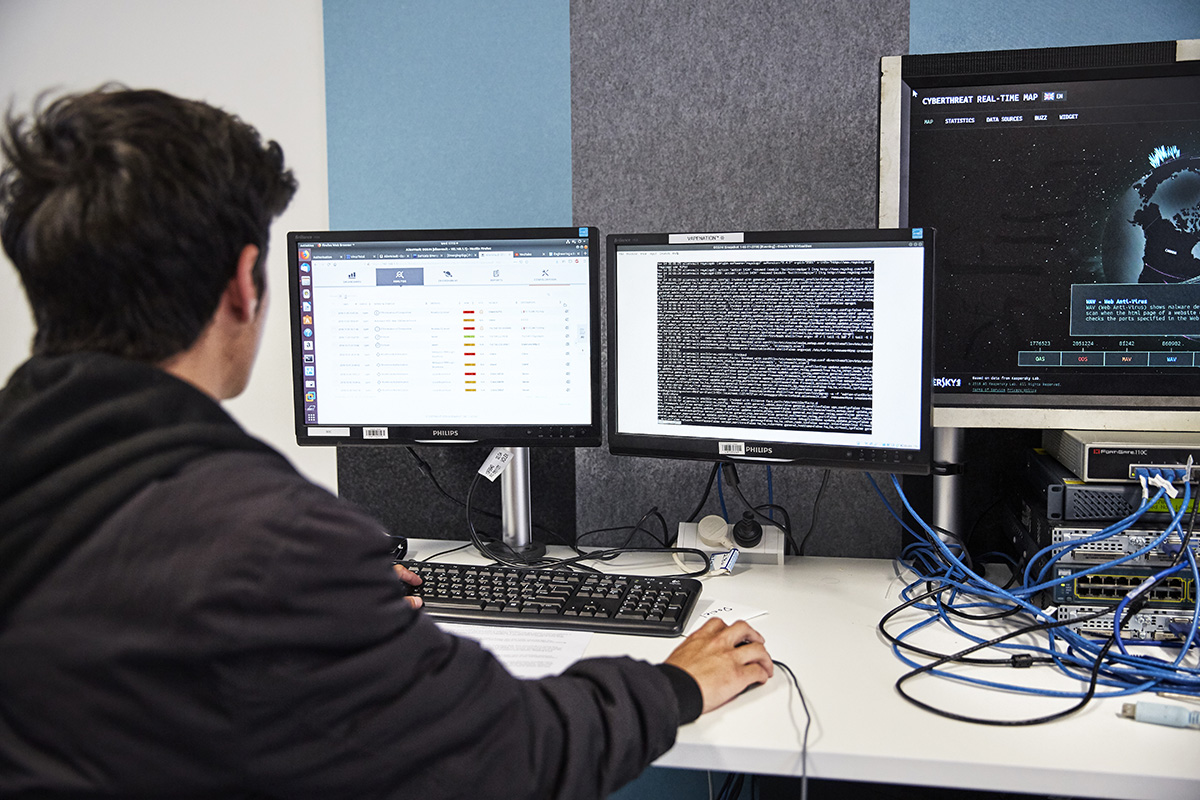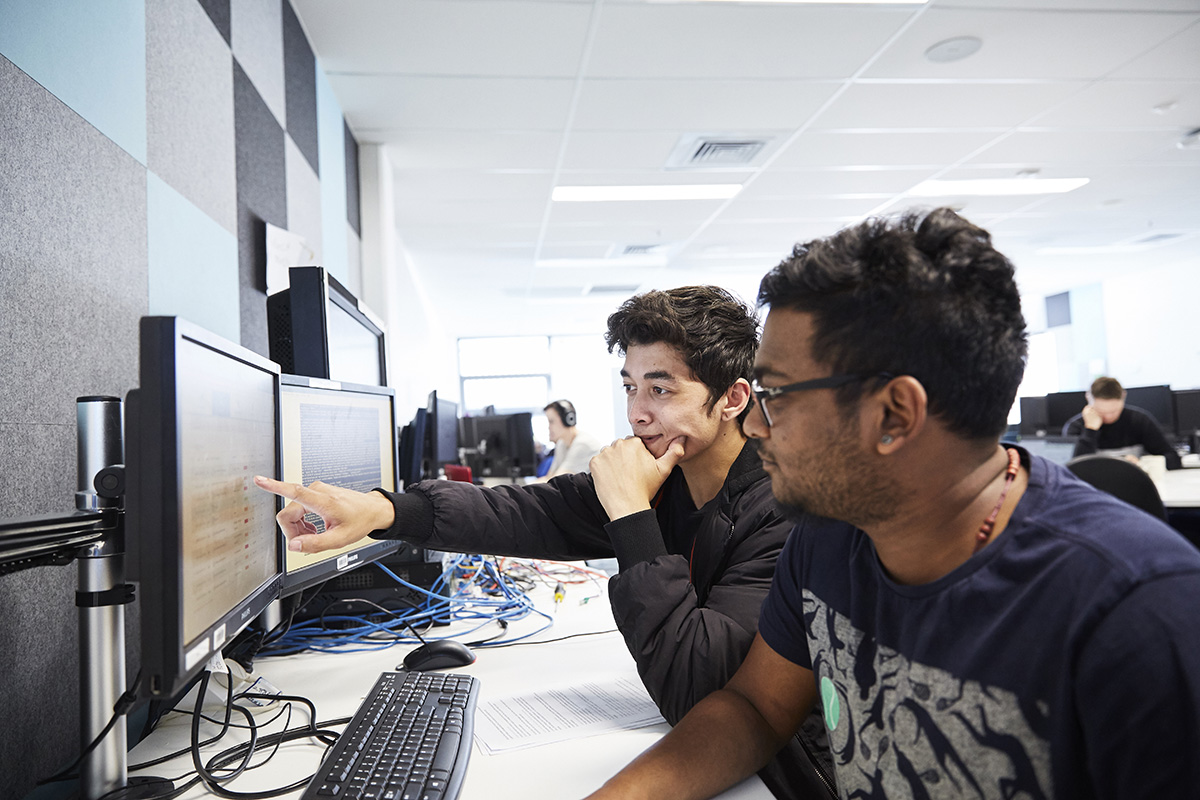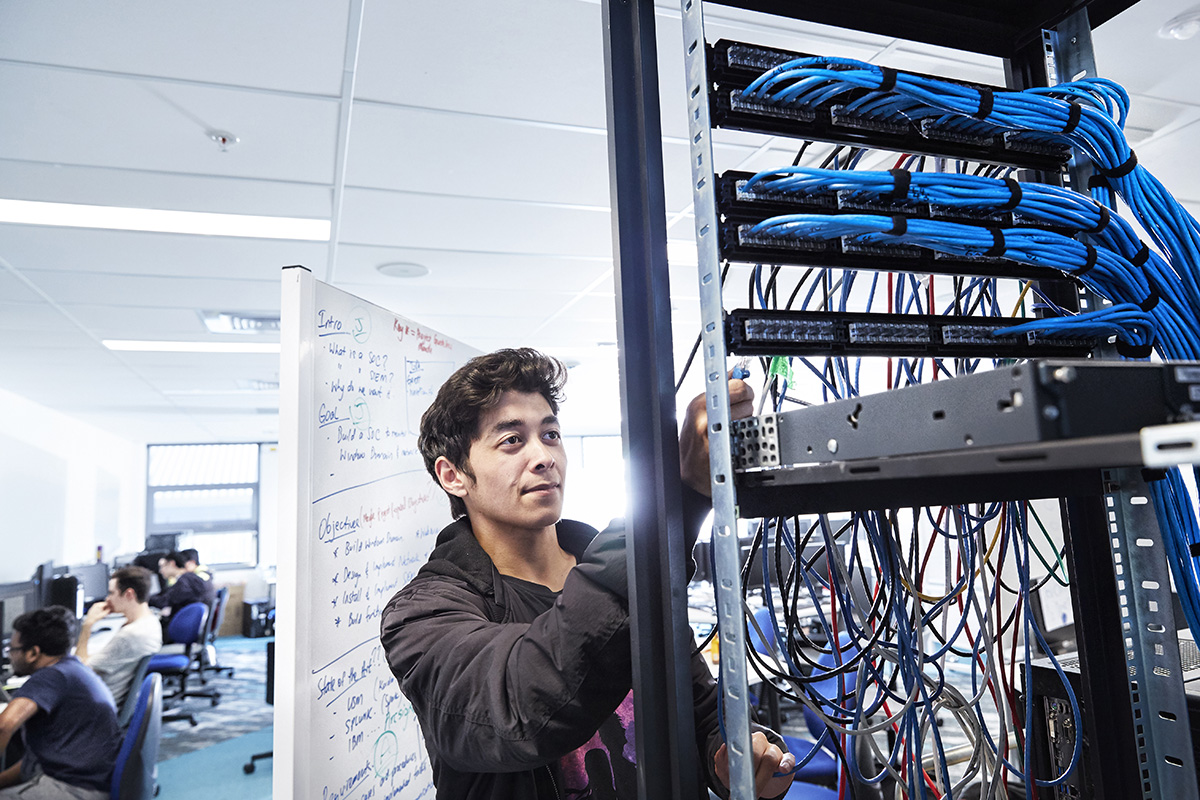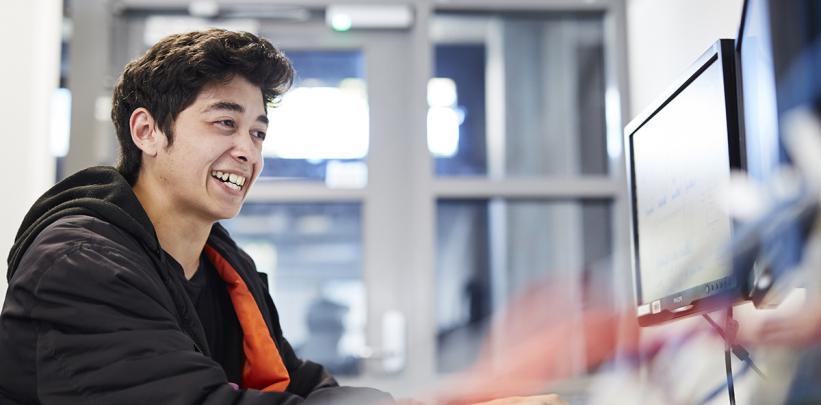Hacker hero
Our classroom is a cyber-safe zone. The rise of the Internet of Things (IoT) is transforming the way we live and work, and with the ever-changing landscape of technology, cybersecurity is becoming extremely important in minimising the risk of a worldwide security breakdown.
Daniel Guthrie is a third year Bachelor of Computing student who is currently working with two others on a cybersecurity project that requires the development of a small-scale security operations centre (SOC), using a security information and event management (SIEM) software solution. This solution will then be implemented using a product called Alien Vault, an industry-relevant software that many large organisations are already using to protect their assets.

The purpose of the security solution is to analyse traffic and events that happen within computers and generate alarms that are based on any anomalies that are occurring in the network, detecting and reporting on anything that might be considered malicious.
“If you don’t have proper security defences in place, hackers will gain access to your systems. We set up the solution so that if a user tries to consistently log in over a certain number of times – using the wrong username and password – then the software will bring up an alert informing us of the hacker’s activity,” says Daniel.
Daniel began his studies at Unitec after a friend had recommended it as a good institute to study Computing and IT, as he had been studying a similar programme.

“Compared to other universities, I think Unitec is a lot better … since you’re exposed to a lot of the practical teachings and learnings, and I think it’s a lot better than just learning theory, because you can really apply what you’ve learned in the classroom,” says Daniel.
The mix of both practical and theory-based learning makes for an interesting learning experience, and having tutorials and labs in addition to theory classes means that students can apply what they’ve learned in a real-world situation.
“The technology and equipment we use is up-to-date and relevant to the industry. You can learn theory from 20 or 30 years ago, but it may not be relevant today. That’s where the lecturers here really shine, as they’re always bringing learnings back to what’s happening in the industry today.”
As part of his third year, Daniel interned at Aura, an independent division of Kordia NZ, where he learnt from penetration testers, or ‘white-hat hackers’, and got to use SIEM software. The team at Aura were really helpful and supportive of the project, helping his team to understand security vulnerabilities in websites, how to exploit them, and how to notify customers so they can mitigate their security gaps.

Through networking opportunities during his internship, he developed a strong relationship with a mentor who pointed him toward a newly advertised position within the company. After going through a proper interview process, he secured the job and now works part-time while he completes his degree.
Daniel strongly believes that anyone connecting to the internet should understand basic cybersecurity principles that might help eliminate possible security issues.
“The weakest link in security is the human aspect. Teaching people to be aware of the security risks when clicking on a dodgy link via an email, or not following best practices for passwords, is so important in today’s technologically-advanced world.”
It goes to show that everything as we know it is evolving and connected in some way, and we don’t really know when the next cyberattack might occur. With more people like Daniel, whose passion is to help people secure their futures and create a safer cyber environment, we might just be able to put a stop to the world’s malicious cyber activities.
